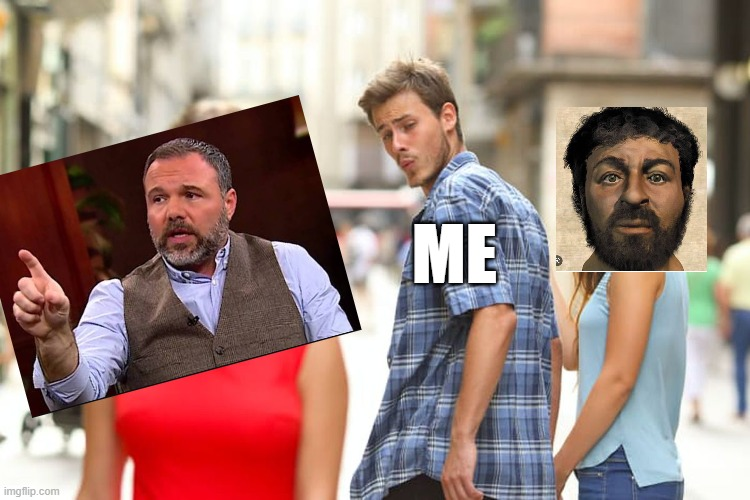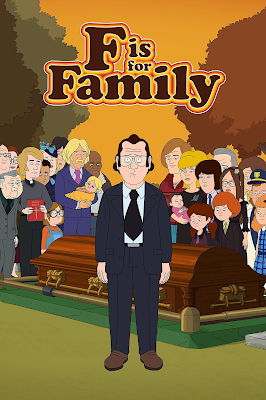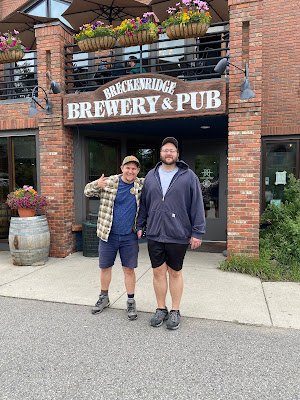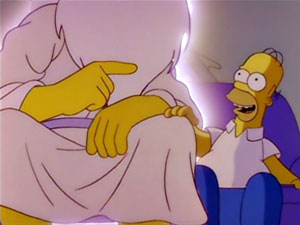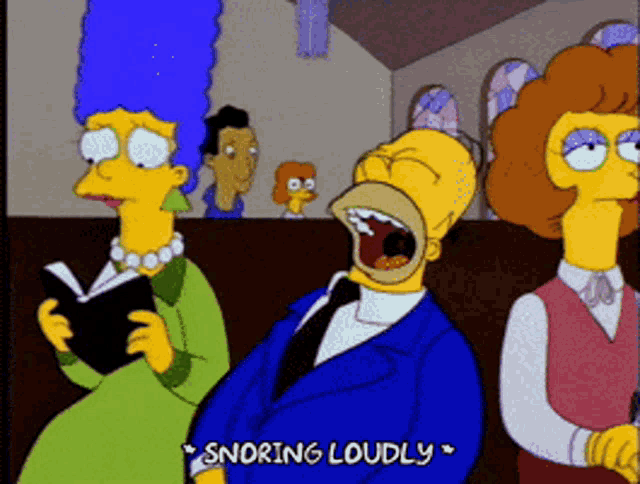I had heard of The Rise and Fall of Mars Hill from a handful of my friends, and the podcast’s viral appeal during the Pandemic. It was only until recently that I had actually found the time to listen to it.
This all started when I decided that I should redeem my
morning commute by finding a podcast, or book on tape, that I could meditate to.
There were a lot to choose from, but, at the top of that list,
The Rise and Fall of Mars Hill awaited me like one of scrooges' specters.
There was once a time when I would have done anything to meet Mark Driscoll, or
go to his church. I think I would have even relocated there, if I had the
finances, or a way to get a job near the campus.
In reality, what my image of Driscoll consisted of was
a flowing river of pixels and soundbites. I had only ever seen him as a
talking head in a web browser window. I was basically what he hated more than
anything at his church: a consumer. I took, and never gave back. (Although,
there was that one time I was shamed in to giving to the Hati relief fund after
their devastating earthquake in 2010…) But I wasn’t alone in this. I think I
was one of maybe millions that listened to his sermons, which were so readily
accessible as internet streaming platforms and social media coalesced in the late 2000s
to what we now understand them to be. Mike Cosper even addresses this as the MC,
who gives context to how Mars Hill Church came to be, and the historical movements
that precipitated it’s meteoric rise to prominence.
I discovered Driscoll during college, listening to his
sermons instead of participating in the local ministries in town, even. I used
his book, The Radical Reformission as a aide for the bible study I led,
which was a mess in and of itself. (“Led,” meaning, “I led a Campus
Crusade Bible Study out of spite for Campus Crusade, which I had
believed at the time had abandoned us because our leaders dropped out of their
commitment to lead us.”) Driscoll's theology was at the forefront of my mind when
discussing the Bible and it’s interpretation. His orthopraxy, was my orthodoxy.
When I eventually did meet him in LA, at an event hosted by Reality LA, while he was on a sermon tour for The Peasant
Princess sermon series, I stood in line at an intermission, waiting to
shake his hand. I told him, to his face, “If being a Father is teaching your children
about God, then you are more of a father than my father,” then gave him a hug. When
I went back to my seat in the auditorium, I cried next to my girlfriend (now,
my wife) for 10 minutes. Later on, when I told my pastor (who knew Mark from
before his rise to fame) back in Escondido about the meeting, he let me
know that Mark complained that one of “his guys” had hugged him.
When I heard about Driscoll resigning from Mars Hill, the impact was like listening to a sonic boom in the distance. I could sense the momentous impact of the event, but I was far enough away to not perceive the collateral damage at the epicenter. Listening to the podcast, I think, informed me of the real consequences of what happens when a man walks away from a church of 15,000 people, and just watches it burn down like the Emperor Nero allegedly did for the city of Rome. I wrote about it, shortly after it happened, in November of 2014. I will let you read the post for yourself, which is something of a time capsule at this point, but I will highlight one piece of it below:
“I hope and pray that Mark moves on from Mars Hill, that this experience motivates him to re-evaluate his personal missiology and the way he deals with people. I hope that he can spend time with his family and take a long vacation and finally let go of his responsibilities. I hope that he decides to pastor a church again, and continue to change the lives of people, and I hope his church never exceeds 200 people.”
I look back on my words and feel naivete and shame. I look
back on my experiences, where I led a bible study and quoted this man to such
great lengths that my life was basically the Distracted Boyfriend
meme. Mostly, I look back on my devotion to this man and I am confronted by
the reality that what I loved so much about this person was completely
fabricated and curated by his personal Media team, with hundreds of thousands of dollars
behind them. I didn’t really know Driscoll at all. And, for the people who did
know him, who were railroaded by him, I played a small part in their
demise at his hands.
A lot of the podcast deals with the issue of culpability. And I think Mike Cosper asks the appropriate questions. He suggests, in no uncertain terms, that we all had a role in Driscoll’s rise to prominence, and that, worse, we drank the Kool-Aid willingly. I vividly recall defending Driscoll during discussions. Granted, it was mostly his "Reformed theology," but I still came to the defense of someone that, behind the scenes, was disqualifying himself from ministry. And that, in no uncertain terms, kind of fucks with me.
When I was recommended the podcast, it was following a period of spiritual upheaval in my life. That others who had since left the Church, could come to this podcast and feel a sense of reconciliation with whatever spiritual abuse they had previously encountered, was a balm unto my soul. Although, in truth, that feeling came and went rather quickly. What galls me, what I don’t understand, what I may never understand, is that Driscoll is still a pastor. For me, that’s difficult to accept. I struggle with the idea that God would allow someone like Driscoll to continue, unabated, in sin. If his Twitter feed is any indication, his aspect is unchanged. He is still the William Wallace II character of the early Mars Hill Message boards, only now he is lauded and accepted by every fearful boomer tuning in to Fox News, if only because he isn’t “woke.”
Simultaneously, however, I am reminded that Driscoll
isn’t the first man to “speak for God” and kindle a movement, despite grievous disqualifications.
If history tells us anything, there have been many “Mark Driscolls” in the past,
who’s cunning and wit transformed and mobilized entire movements of theological
thought. I may even meet him in heaven and behold his redeemed aspect, shed of
all his faults and misdeeds, by the grace of Jesus, and finally shake his hand
without shame… But, until then, I am oddly confronted by my own self-serving
righteousness, and my desire to see him punished, despite knowing the truth: Mark
Driscoll was justified by Christ’s death, burial, and resurrection. Who am I to
want justice and retribution, while at the same time holding back my
forgiveness? Even Mark Driscoll deserves forgiveness. Why? Because Christ
forgave me.
If none of this makes sense to you, then I welcome you to the personal hell I find myself in. But if it does, then pray for me, and for
Mark, in hopes that we can both meet and embrace one another, one day, without
pretense.

